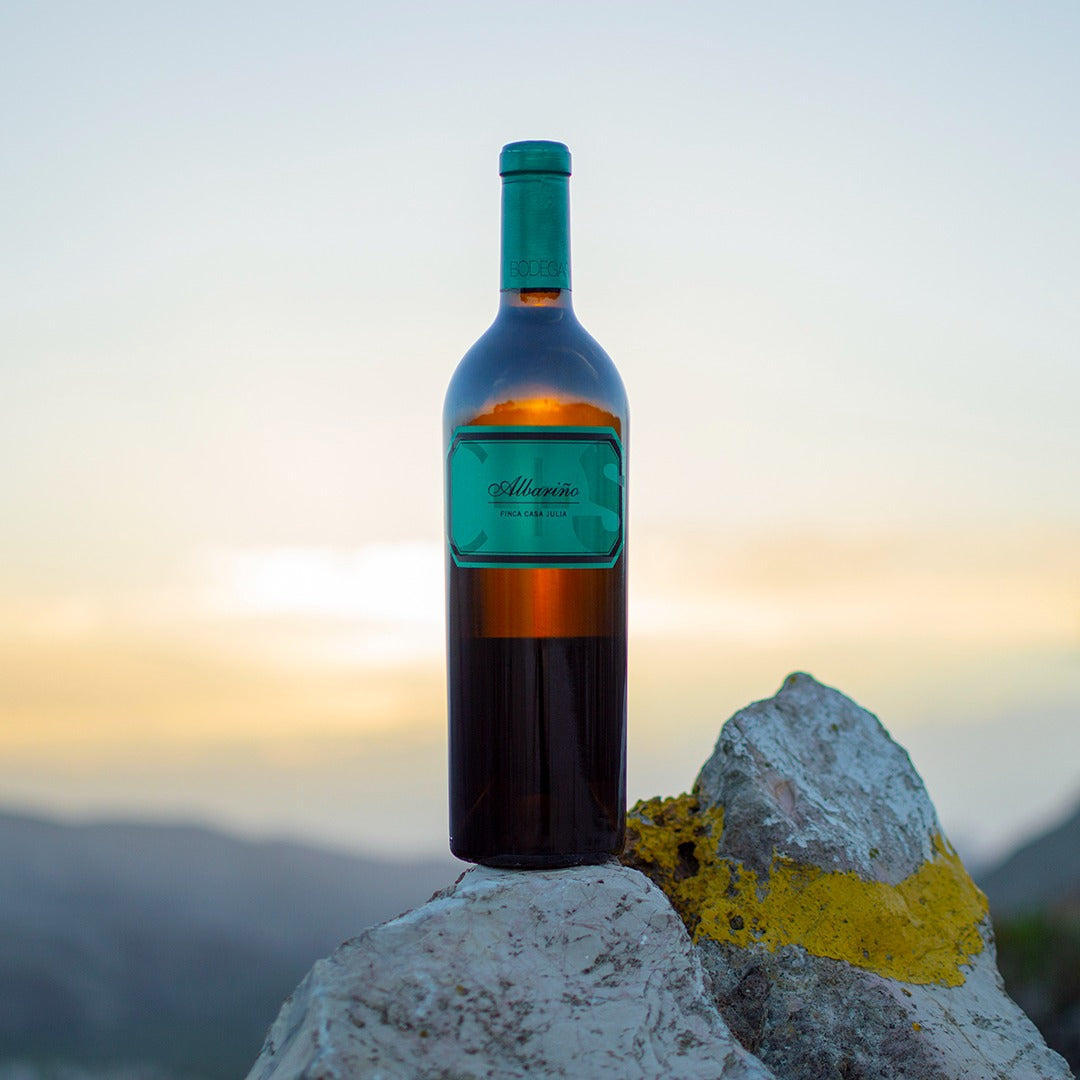It isn’t in the major league yet (it’s not Chardonnay or Pinot Grigio, after all) but Albariño has become the hottest grape of the year.
Albariño is native to the cool Atlantic coast of Iberia – namely in the Rías Baixas of Galicia, or in northern Portugal’s Vinho Verde, where it goes by Alvarinho. In Spain, winemakers are proving the grape’s versatility with some innovative expressions.
In short, Albariño is hip. This isn’t new: it’s been brewing for some time. The grape has been getting increasingly popular in Uruguay (which also shares an Atlantic influence, only in the southern hemisphere) while more experimental Albariños are popping up in Australia, New Zealand, South Africa, California, France, England and Japan. Surely this a sign it’s going international?

In Val do Salnés, the heart of Rías Baixas, Mar de Frades exemplifies the classic Atlantic Albariño, characterized by freshness, high acidity, salinity, pure peach fruit, and a mineral finish. Yet, the winery’s technical director, Paula Fandiño, has been pushing boundaries from the start. Her curiosity has led her to explore single vineyard sites (playing between altitudes, vine age and soil types), vessel materials (ranging from steel to bespoke granite vats), lees ageing (length of time, and methods including a gentler use of inert gasses to suspend the lees in the wine without stirring), and ultimately the second fermentation to create sparkling. Mar de Frades was the first producer to make traditional method sparkling Albariño and many have followed suit, proving the naturally high acidity of Albariño, and affinity with autolysis is a path worth pursuing in this region.
From this damp corner of Green Spain that receives 1,600mm of annual rainfall, buffeted by the tempestuous ocean, rooted on free-draining sandstone and granite soils, Albariño is hailed an iconic Atlantic grape. So how does it fare in different terroirs?

On Spain’s Mediterranean coast, the warmer, drier climate might seem an unlikely choice for Albariño, a grape that thrives in cooler conditions. Boutique winery Hispano Suizas in Valencia has defied expectations. Founded in 1999, just a year after Mar de Frades, Hispano Suizas planted Albariño. Encouraged by the results, co-owners Pablo Ossorio and Rafael Navarro successfully lobbied for the grape’s approval within the Utiel-Requena DO.
In contrast to the Atlantic coast, Albariño in the Mediterranean heat requires careful water management, including drip irrigation to compensate for the grape’s natural affinity for moisture. The yields in Requena are lower than in Galicia, ranging between 6,000 and 8,000 kg per hectare, compared to Galicia’s 10,000 to 12,000 kg, partly due to poorer soils and less rainfall.
The high altitudes in Requena (around 700m) delay the harvest to the second half of September, later than in Galicia. ‘In Requena, the maturation is very linear due to the altitude, with a temperature drop of 18ºC between day and night. This naturally degrades malic acid while maintaining total acidity,’ explains Navarro.
Alcohol levels in Albariño mirror their respective climates, with cooler climate Galician wines reaching 12-13%, while warmer Valencian examples easily hit 14%, yet still retain the varietal’s high acidity. The difference in climate is also reflected in the ripeness and body of the wines: Mediterranean Albariños tend to have juicy tropical fruit, richness, and fuller body, while those from Galicia are piercingly fresh, with zesty green and citrus fruits and a lighter body.
In response to the distinct environment of Requena, Hispano Suizas has also adapted its winemaking approach. Their fresh but opulent Albariño is fermented in new 400-litre French oak barrels, then aged in new 300-litreFrench oak barrels for six months, followed by a minimum of four months in concrete tanks before bottling. The result in the glass is strange and stunning. With aromas of cinnamon and apple cider, tarte tatin, wool, lemon rinds, wet stones, and autumn leaves. A beguiling wine reminiscent of maturing Savennières.
Just as Chablis and Meursault exemplify the diverse styles of Chardonnay, so too does Albariño showcase remarkable adaptability through its two distinct Spanish expressions—one Atlantic and one Mediterranean. These contrasting styles highlight Albariño’s extraordinary versatility and potential, marking its emergence as a truly international variety.
Victoria Daskal is a wine writer, educator, presenter and consultant with over 15 years of experience in the wine industry. Find details of her upcoming wine experiences and courses on www.victoriadaskal.com and on instagram @victoriadaskalwine




